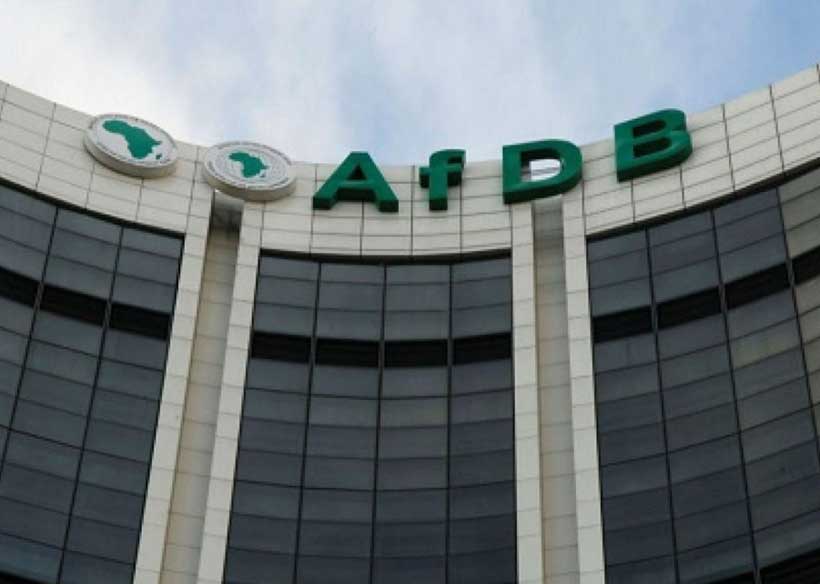AfDB Approves $47.5M Loan to Boost Eswatini’s Economic Resilience and Jobs
The EERCP represents the first phase of a two-year program designed to fortify Eswatini’s economic foundations, strengthen fiscal sustainability, and accelerate private sector-led growth.

- Country:
- Eswatini
In a strategic move to support economic transformation and resilience in Southern Africa, the African Development Bank Group (AfDB) has approved a $47.5 million loan to the Kingdom of Eswatini. The funding marks the launch of the Enhancing Economic Resilience and Competitiveness Program (EERCP), a pivotal initiative aligned with Eswatini’s National Development Plan (2023–2028).
The EERCP represents the first phase of a two-year program designed to fortify Eswatini’s economic foundations, strengthen fiscal sustainability, and accelerate private sector-led growth. The initiative targets job creation, improved service delivery, and enhanced livelihoods, especially for youth and women—key demographics in the country’s socioeconomic landscape.
Strategic Timing Amid Economic Challenges
The loan comes at a critical juncture for Eswatini. The country's economy is grappling with external shocks and structural vulnerabilities, notably:
-
A decline in GDP growth from 5% in 2023 to an estimated 3.6% in 2024 due to severe droughts affecting agricultural production.
-
A fiscal deficit increase from 1.5% to 1.7%, driven by lower Southern African Customs Union (SACU) revenues and mounting public expenditure pressures.
-
Youth unemployment at 48.7% and overall unemployment at 35.4%, among the highest in the region.
“This operation comes at a critical juncture for Eswatini as the country navigates challenging economic conditions while implementing ambitious reforms,” said Moono Mupotola, AfDB Deputy Director General for Southern Africa. “Our support will help the Kingdom build fiscal resilience while creating an enabling environment for private sector-led growth that can generate jobs for young people and women.”
Two Pillars: Fiscal Reform and Inclusive Competitiveness
The EERCP is built around two interlinked pillars:
-
Deepening fiscal and public financial management reforms This includes efforts to reduce domestic arrears, improve transparency in public spending, and modernize tax administration—all aimed at restoring fiscal discipline and enhancing government credibility.
-
Enhancing competitiveness and private sector growth The program will introduce policies and reforms to reduce regulatory bottlenecks, encourage investment in green and renewable energy, and increase private sector participation in the economy. This includes supporting SMEs, streamlining procurement processes, and addressing gender disparities in economic participation.
Inclusive, Green, and Gender-Responsive Growth
The AfDB emphasized that the EERCP incorporates strong components on gender equality, social inclusion, and environmental sustainability. The program is expected to lead to tangible outcomes such as:
-
A rise in private sector contributions to GDP
-
Increased renewable energy share in the national energy mix
-
Reduced domestic payment arrears
-
Improved Country Policy and Institutional Assessment (CPIA) scores for fiscal policy and social inclusion
The CPIA, conducted biennially by the AfDB, serves as a diagnostic framework to assess the quality of governance, economic management, and institutional frameworks across African countries.
Complementary Support and Regional Partnerships
The EERCP was developed in close coordination with the World Bank, which is also contributing to Eswatini’s reform agenda through complementary financing. This alignment reflects a broader strategy by international development institutions to harmonize support for African nations facing multifaceted economic challenges.
The program also draws on the AfDB’s successful engagement with Eswatini in previous interventions, including the Support for Economic Recovery and Inclusive Growth project and technical assistance in state-owned enterprise (SOE) reform, gender mainstreaming, and procurement modernization.
Long-Term Vision for Economic Transformation
The AfDB believes this funding will serve as a catalyst for sustainable, inclusive development, unlocking structural reforms that have long been delayed due to resource constraints and political complexities. By strengthening the country’s economic and institutional resilience, the EERCP sets the stage for a more equitable, transparent, and dynamic Eswatini economy.
The next phase of the program, anticipated in 2026, will build on the initial progress and expand reform implementation across broader sectors, including education, agriculture, and digital transformation.
ALSO READ
‘The margins of the budget’: Gender equality in developing countries underfunded by $420 billion annually
UN Women at 15: Urges Bold Action to Reverse Setbacks in Gender Equality
With sustainable development under threat, Sevilla summit rekindles hope and unity
IDB and EIB Forge New Deal to Boost Sustainable Development in LAC
Letsike Urges G20 to Turn Gender Equality Commitments Into Global Action










